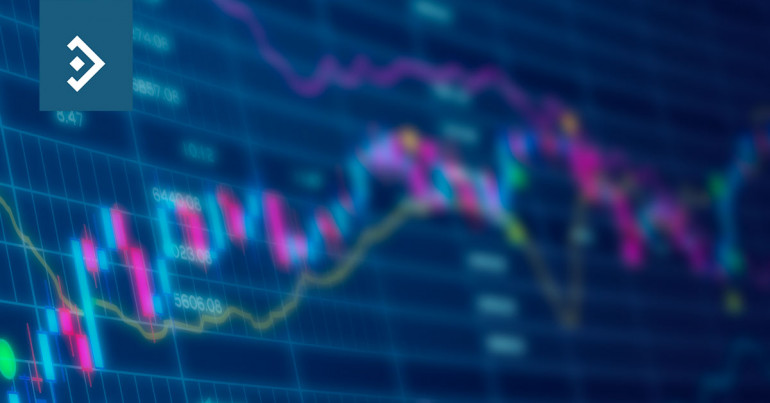
One driver at a time please
Morning mid-market rates – The majors
17th January: Highlights
- The UK economy is suddenly “front and centre”
- Muted reaction to phase one trade agreement
- Banks starting to shore up balance sheets, except German banks
Economy surpasses Brexit on BoE action
It now seems that as algorithms have taken over from intuition, the market can only cope with one driver at a time. For the past forty months or so, Brexit has been the only game in town. Theresa May was clearly the sacrificial lamb offered up by the Government to draw the ire of opposition MPs and indeed some of her own.
Boris Johnson has had a relatively easy path to “getting Brexit done” which he is in danger of not taking total advantage of.
He has completed the first stage, “phase one is the new global vernacular” of Brexit but it remains to be seen if without Parliament’s checks and balances he has a strong enough team to joust with Brussels and deliver a complete break including a trade deal by December 31st.
Now, the economy is starting to falter with several leading indicators turning negative. It appears that Mark Carney and his colleagues and the Bank of England will have an important part to play, and Mr. Carney is going to leave just as the Governor’s job becomes both relevant and important again.
There was something of a surprise in the credit conditions report released earlier by the Bank of England. Analysts are surprised at predictions that credit may become scarcer. House purchase demand for secured credit and the rates charged both fell in the three months to December. Predictions of tougher conditions are surprising as the market is awash with cash looking for a home.
This morning’s retail sales data and next week’s PMI’s will probably solve the “will they, won’t they” conundrum, despite the MPC, as I said earlier in the week, not tending to react to single month’s data streams or single weaker areas of the economy.
The pound managed to rally briefly versus a weakening dollar, touching 1.3084, but following stronger than anticipated it drifted lower, touching 1.3025 before closing at 1.3076.
Considering your next transfer? Log in to compare live quotes today.
Trump’s impeachment little more than a sideshow
It is true to say that the trial is likely to be little more than an inconvenience with surveys of Trump’s supporters confirming that it will have no effect on their solidarity.
There will be seven “impeachment managers” sent by the House of Representatives to argue the case for the prosecution in the Senate. Each has a law enforcement or legal background which the overriding reason they were chosen by Nancy Pelosi, the Speak of the House.
The case will unfold over the next few days and despite his demeanour, the President will feel a whole lot more comfortable once it is all over.
Yesterday’s release of retails sales data gave a late boost to the dollar, proving to be appreciably stronger than the market imagined. This is still unlikely to provide any tailwind to the prospect of the Fed hiking rates in the coming months or even quarters.
There is a growing feeling amongst analysts that the Fed has its “finger on the pulse” of the economy but there are a few matters that could create a turnaround in their outlook in either direction: the trade talks that have just restarted could start to look difficult, particularly since the outcome of phase one appears to have favoured Beijing. Employment could continue to be erratic at best and inflation may continue to rise.
The first FOMC meeting of the year is on 28/29 January and the minutes will be eagerly awaited. Jerome Powell will provide detail on Longer-Run Goals and Policy Strategy at the press conference immediately following the meeting. He will also make a statement regarding Monetary Policy Implementation and Balance Sheet Normalization.
The dollar index traded between 97.36 and 97.09 yesterday, closing at 97.30
Bank’s slow recovery looks set to begin
Germany fresh from being ranked below Ireland as the region’s export powerhouse has now seen the net interest income of its banks fall below that of Greek Banks. Yes, Greece! A country that the German Chancellor came very close to having thrown out of the Eurozone.
In the account of the most recent meeting of the ECB, it was noted that there is a degree of optimism around the appointment of Christine Lagarde as President. It was also noted that business surveys since September have started to become more optimistic. The report fails to acknowledge that it is a little pointless, even naive, to continue to be optimistic when the leading indicators continue remain static at best.
The Council of the ECB noted that the risks to the economy remain tilted to the downside despite the Central Bank having cut rates coincidentally also in September. The downside tilt is, apparently, becoming less obvious despite a concern that the downturn in manufacturing and industrial activity may spill over into the “so far resilient” services sector.
Furthermore, having restarted its asset purchase scheme in November, it is hard to follow anything other than a more cautious tone from Ms Lagarde.
The “elephant in the room” that is fiscal union continues to be studiously ignored and until Ms Lagarde takes the bull (or elephant) by the horns, traders will continue to see the ECB as redundant.
The single currency traded between 1.1173 and 1.1127 yesterday, closing at 1.1137

About Alan Hill
Alan has been involved in the FX market for more than 25 years and brings a wealth of experience to his content. His knowledge has been gained while trading through some of the most volatile periods of recent history. His commentary relies on an understanding of past events and how they will affect future market performance.”



